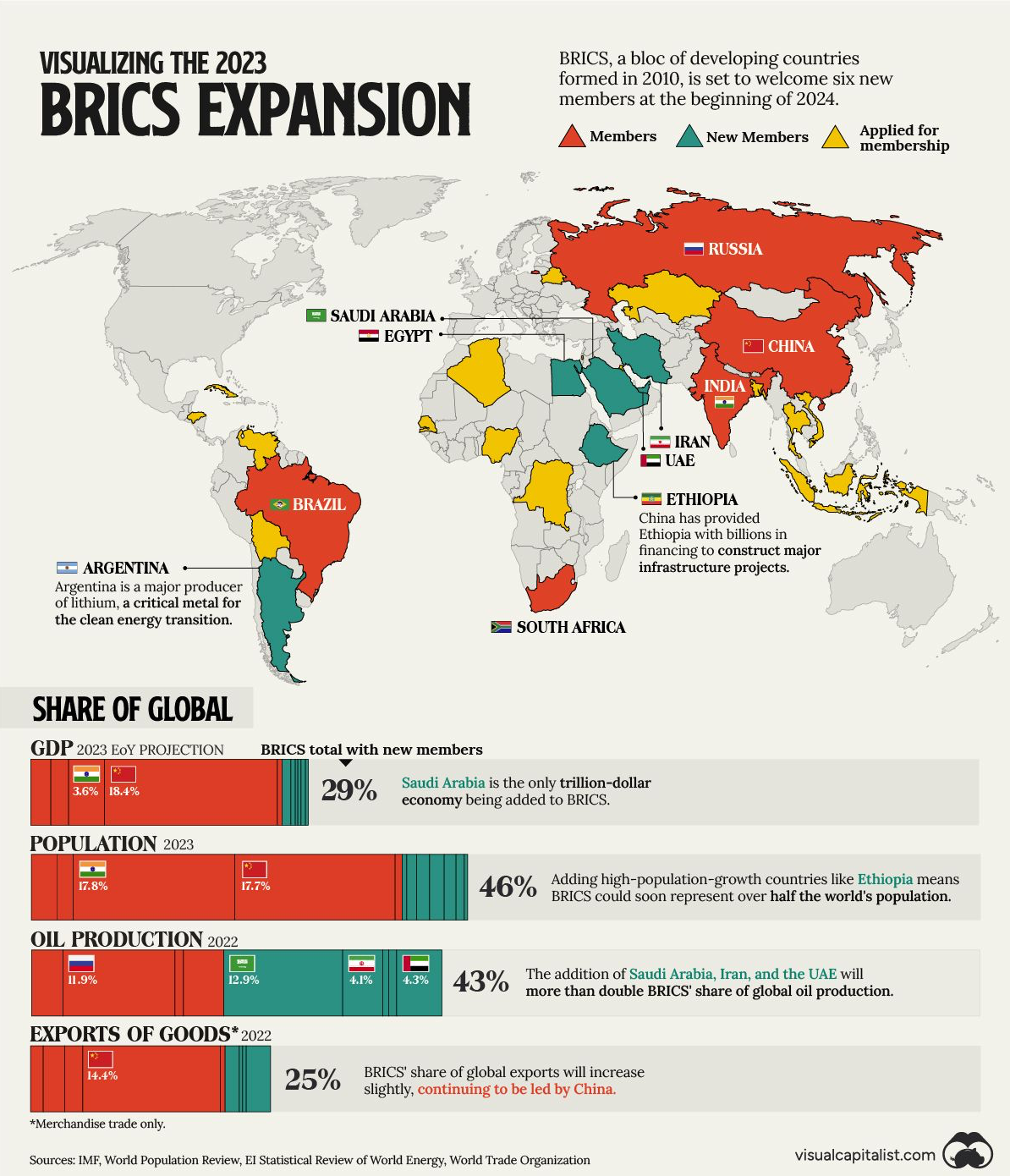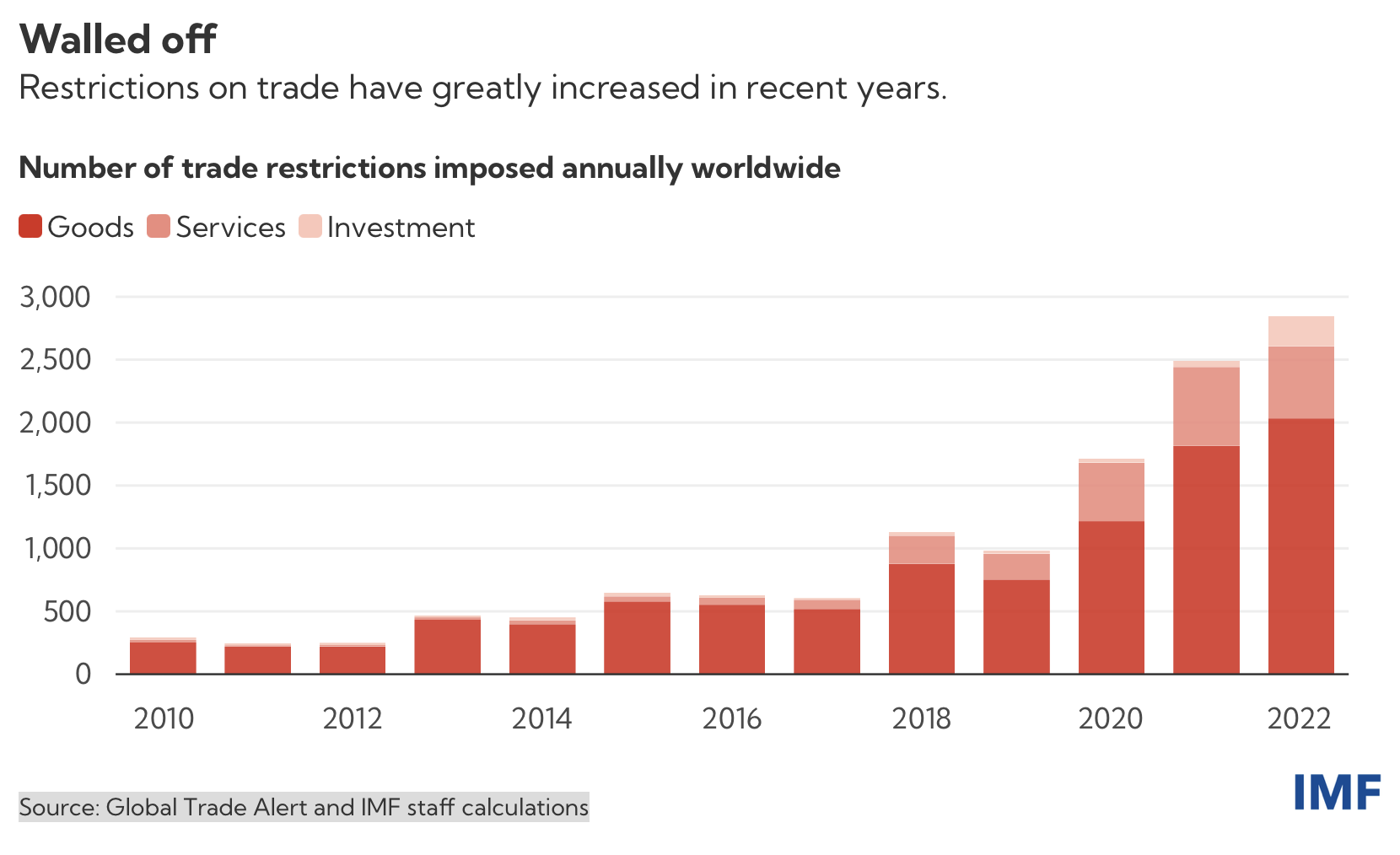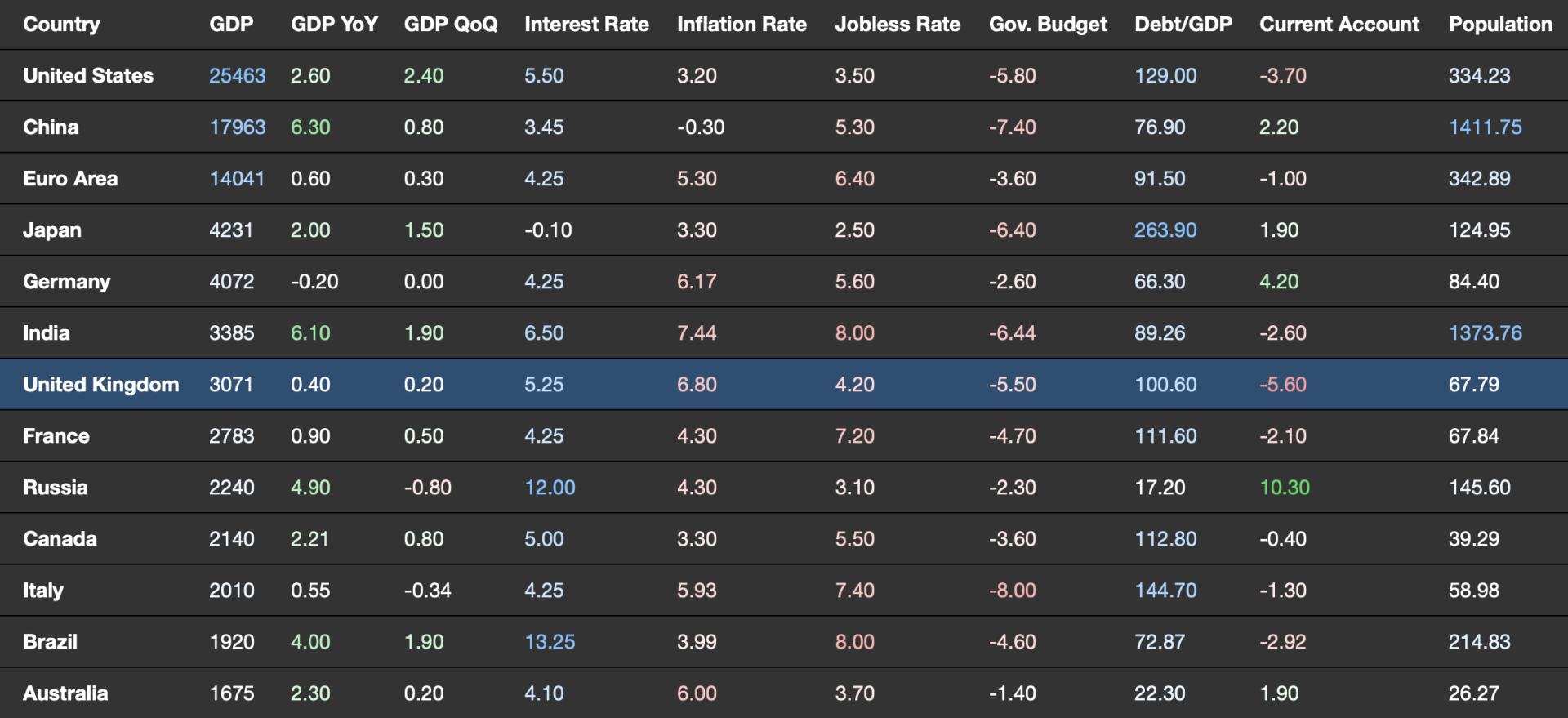Home > Wednesday Wisdoms: Newsletter > Why is A-level Economics important?
Jump to Section:
Why is A-Level Economics So Important? 🎓📈
1) Mastering Decision-Making Skills 🤔💭
2) Influencing Policy and Governance 🏛️📜
3) Examining Social Issues Through an Economic Lens 🌍👀
4) Acquiring a Global Perspective 🌍🌐
5) Enhancing Personal Financial Literacy 💰📚
Will Pizza Hut be next giant to disappear from the High Street?
Summary:
A Level Economics Questions:
Possible A Level Economics 25 Marker Question
Infographic of the Week

The BRICS association, originally comprising Brazil, Russia, India, China, and South Africa, announced plans to expand by adding six new members—Saudi Arabia, Iran, Ethiopia, Egypt, Argentina, and the UAE—starting in 2024. While the group's combined GDP and population are projected to marginally increase, its influence in global oil production is set to jump significantly from 20.4% to 43.1%, largely due to Saudi Arabia's inclusion. The expansion will also increase the group's share of global exports to 25.1%. Over 40 countries have expressed interest in joining, although differing political and economic priorities among expanding membership could lead to future tensions within the group.
Chart of the Week

The risk of global economic fragmentation is increasing due to greater trade restrictions and a lack of international cooperation, potentially reducing global economic output by as much as 7%, or about $7.4 trillion, over the long term. This decline is equivalent to the combined economies of France and Germany and triple the annual output of sub-Saharan Africa. New trade barriers have nearly tripled since 2019, and other forms of disintegration like technological decoupling are also contributing to rising costs. The IMF underscores the importance of targeted cooperation to face global challenges and mitigate the impact of economic shocks.
Macroeconomic Data

Whenever you're ready there is one way I can help you.
Emre Aksahin
Chief Learning Officer at Edgenie


